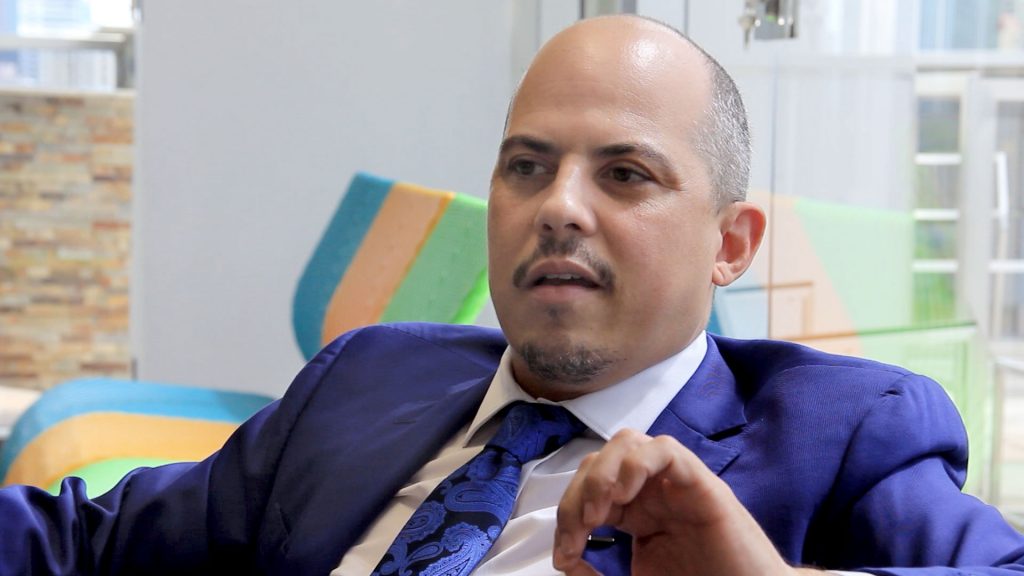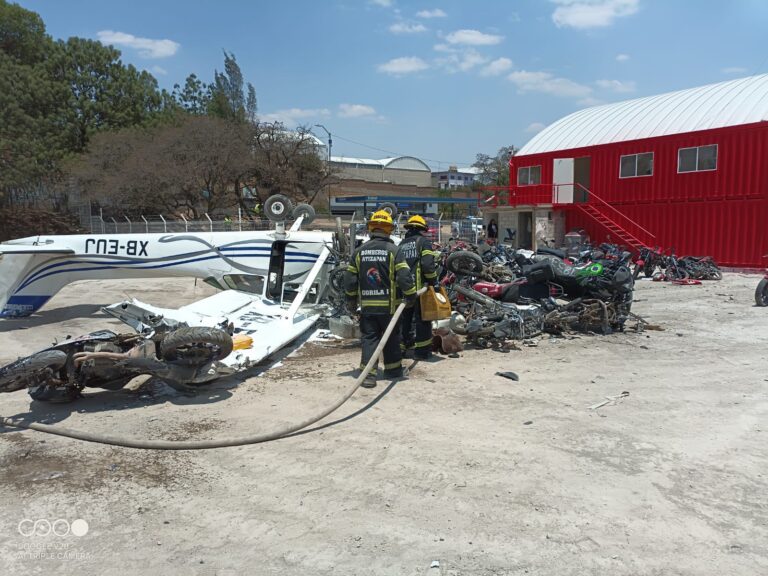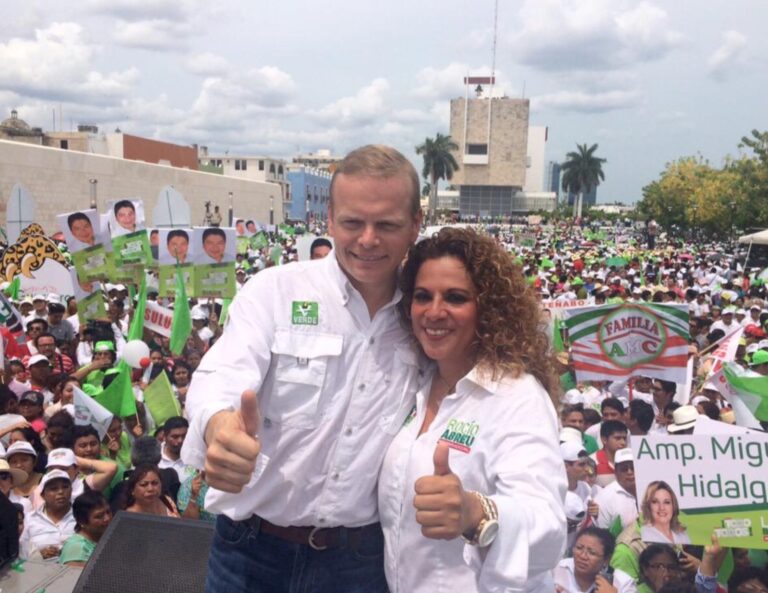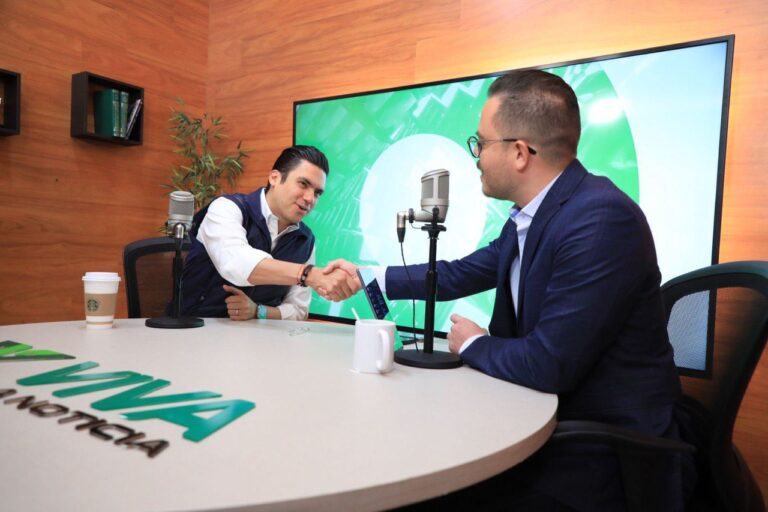Blockchain: Gutemberg Dos Santos habla de sus posibilidades transformadoras

A veces, cuando pensamos en el mundo de los contratos inteligentes, es inevitable pensar también en criptomonedas y en transacciones por la red. Gracias a las mitologías populares del cine y la televisión, es fácil ver estas tecnologías como parte de un mundo que está reservado para los hackers y para todo tipo de expertos […]
A veces, cuando pensamos en el mundo de los contratos inteligentes, es inevitable pensar también en criptomonedas y en transacciones por la red. Gracias a las mitologías populares del cine y la televisión, es fácil ver estas tecnologías como parte de un mundo que está reservado para los hackers y para todo tipo de expertos en informática, leyes, finanzas. Cuando pensamos así, sentimos que este mundo está lejos de nosotros, en su propia esfera.
Hoy hablamos con Gutemberg Dos Santos, una autoridad en tecnologías como Blockchain y las criptomonedas, quien nos habla del enorme impacto que tendrá, en casi todos los estratos de nuestra sociedad, esta nueva manera de intercambiar bienes y servicios.
Compartimos aquí el resultado de la entrevista. Se han suprimido preguntas, comentarios al margen y otros elementos, para una lectura más ágil.
Para mayor información visita: https://www.gutembergds.com/
De la necesidad a la visión
Igual que muchas nuevas tecnologías, Blockchain surgió para resolver una necesidad: la posibilidad de hacer transacciones seguras, reguladas e inalterables. Pero, con su uso, comenzaron a ser visibles su enormes posibilidades. Fue posible entender que esta tecnología podría tener repercusiones en muchos ámbitos de la sociedad, no sólo para lo que fue diseñada. Su impacto, ahora lo vemos, será histórico. Lo que Blockchain puede lograr es eliminar el control y el costo de las organizaciones intermediarias que, hasta hoy, han controlado este tipo de intercambios. Bancos, despachos legales, notarios… Cualquier transacción entre dos individuos ha tenido siempre que pasar por ellos, y dejarles una parte. Hoy, las transacciones directas entre individuos están a nuestro alcance. Blockchain es, en esencia, el gran paso hacia la democratización de las transacciones.

Para todos, en todos los campos
En realidad, no todas nuestras transacciones pasan por los intermediarios, porque muchos intermediarios no están dispuestos a darnos un servicio para transacciones mínimas, que estén por debajo de una cantidad de dinero. Y en las transacciones significativas, ellos tienen que llevar una parte. Es decir, hay un costo, pero el servicio es restringido. Con Blockchain, al no haber costo por transacción, es posible cobrar cantidades ínfimas —incluso, en teoría, fracciones de centavos— sin límite y sin costo. Eso lo hace ideal para servicios que hoy son controlados por firmas de suscripción. Músicos, artistas, prestadores de servicios, propietarios intelectuales, maestros, pueden ahora recibir, de manera directa, el pago por sus servicios, y
mantener sus precios, sin cargar a sus usuarios o clientes el costo de la transacción. Con esta tecnología también sería posible adquirir bienes o servicios sin pasar por agencias o tiendas en línea. Esto se debe a que, en la esencia misma de Blockchain, está el concepto de descentralización: se trata de intercambios entre individuos, sin que haya una entidad centralizadora que controle todas las transacciones (y cobre por hacerlo). Al mismo tiempo, la regulación y la vigilancia del cumplimiento de cada transacción queda a cargo de una comunidad integrada por miles o, en ocasiones, millones de usuarios, interconectados, cada uno con una copia del contrato inteligente. Incluso si alguien se tomara la molestia de hacer un cambio en el contrato, le resultaría imposible hacer ese mismo cambio en cada una de las miles y miles de copias que están almacenadas en los equipos informáticos de personas en todo el mundo. A la vista, con total transparencia, sin cajones cerrados.
Descentralización, transparencia e inmutabilidad
Es difícil para nosotros, por nuestra cultura y por falta de opciones reales, imaginar un mundo realmente descentralizado. Siempre hemos recurrido a esquemas centrales de organización para todo tipo de operaciones. Bancos, notarías, instancias de gobierno, grandes empresas que controlan bienes y servicios… Es la manera que conocemos para sentir seguridad y para obtener resultados. Aunque, también por experiencia, nos quedan claras las limitaciones: cuando un organismo central controla todo, lo que afecte a ese organismo afectará a todos los usuarios, quienes no tienen ningún mecanismo para intervenir. La institución centralizada puede ser corrompida, intervenida, atacada o, simplemente, colapsar, por fuerzas de mercado o por sucesos históricos. Cuando eso pasa, ya no hay respuestas. Ellos tenían la información, el control, los recursos, todo el poder. En una instancia descentralizada, todos los usuarios están a cargo de vigilar las transacciones. Si uno de ellos pierde la información o es víctima de un ataque o sabotaje, habrá miles o millones que también poseerán la información y podrán restaurarla. Por supuesto, se eliminan las tarifas por intermediación, y los trámites engorrosos. Además, cuando entras en un convenio por Blockchain, el convenio está a la vista de todos para ser leído y revisado: cuentas con anonimato, porque en lugar de usar nombres se usan códigos individuales. Pero todos los términos del contrato están a la vista, con total transparencia.
Y, dado que cada bloque en la cadena cuenta con un registro de tiempo y con un conjunto de datos que lo hacen único, es inmutable: nadie puede falsificarlo ni alterarlo. Cualquier intento en esta dirección sería inmediatamente detectado y demostrable.

Una nueva dirección
Al pensar en Blockchain, debemos pensar en un mundo nuevo, que es posible: una manera revolucionaria de hacer transacciones descentralizadas, con absoluta garantía, sin importar el tamaño del monto. Un mundo más abierto, más democrático, más fluido. Un mundo donde la gente común tenga más control.
Para mayor información visita: https://www.gutembergds.com/
Blockchain: Gutemberg Dos Santos talks about its transformative possibilities
Sometimes, when we think about the world of intelligent contracts, it is inevitable to also think about cryptocurrencies and online transactions. Thanks to the popular mythologies of cinema and television, it is easy to see these technologies as part of a world that is reserved for hackers and for all kinds of experts in information technology, law, and finance. When we think like this, we feel that this world is far from us, in its own sphere.
Today we speak with Gutemberg Dos Santos, an authority on technologies such as Blockchain and cryptocurrencies, who tells us about the enormous impact that this new way of exchanging goods and services will have on almost all strata of our society.
We share here the result of the interview. Questions, comments in the margin and other elements have been deleted, for a more agile reading.
For more information visit: www.gutembergds.com
From necessity to vision
Like many new technologies, Blockchain arose to solve a need: the possibility of making secure, regulated and unalterable transactions. But, with its use, its enormous possibilities began to be visible. It was possible to understand that this technology could have repercussions in many areas of society, not only for what it was designed for. Its impact, now we see it, will be historic. What Blockchain can achieve is to eliminate the control and cost of the intermediary organizations that, until today, have controlled this type of exchanges. Banks, legal offices, notaries … Any transaction between two individuals has always had to go through them, and leave them a piece of the cake. Today, direct transactions between individuals are within our reach. Blockchain is, in essence, the great step towards the democratization of transactions.
For everyone, in all fields
Actually, not all of our transactions go through third-parties, because many of them are not willing to give us a service for minimum transactions, which are below an amount of money. And in significant transactions, they have to take a piece. That is, there is a cost, but the service is restricted. With Blockchain, as there is no cost per transaction, it is possible to charge very small amounts -even, in theory, fractions of cents- without limit and without cost. That makes it ideal for services that are now controlled by subscription firms. Musicians, artists, service providers, intellectual owners, teachers, can now receive, directly, the payment for their services, and maintain their prices, without charging their users or customers the cost of the transaction.
With this technology it would also be possible to acquire goods or services without going through online agencies or stores. This is because, in the very essence of Blockchain, there is the concept of decentralization: it is about exchanges between individuals, without a centralizing entity that controls all transactions (and charge for doing so). At the same time, the regulation and monitoring of the compliance of each transaction is the responsibility of a community made up of thousands or, occasionally, millions of users, interconnected, each with a copy of the intelligent contract. Even if someone took the trouble to make a change to the contract, it would be impossible for them to make the same change in each of the thousands and thousands of copies that are stored on the computers of people around the world. In sight, with total transparency, without closed drawers.
Decentralization, transparency and immutability.
It is difficult for us, for our culture and for lack of real options, to imagine a really decentralized world. We have always resorted to central organization schemes for all types of operations. Banks, notaries, government agencies, large companies that control goods and services … It is the way we know to feel security and to obtain results. Although, also by experience, the limitations are clear to us: when a central body controls everything, what affects that organism will affect all users, who have no mechanism to intervene. The centralized institution can be corrupted, intervened, attacked or simply collapsed by market forces or by historical events. When that happens, there are no answers. They had the information, the control, the resources, all the power. In a decentralized instance, all users are in charge of monitoring transactions. If one of them loses the information or is the victim of an attack or sabotage, there will be thousands or millions who will also possess the information and be able to restore it. Of course, intermediation fees and cumbersome procedures are eliminated. In addition, when you enter into an agreement for Blockchain, the agreement is open to everyone to be read and reviewed: accounts with anonymity, because instead of using names, individual codes are used. But all the terms of the contract are in plain sight, with total transparency.
And, given that each block in the chain has a time record and a set of data that makes it unique, it is immutable: no one can falsify it or alter it. Any attempt in this direction would be immediately detected and demonstrable.
A new direction
When thinking of Blockchain, we must think of a new world, which is possible: a revolutionary way of doing decentralized transactions, with absolute guarantee, regardless of numbers or amounts. A more open world, more democratic, more fluid. A world where ordinary people have more control.
For more information visit: www.gutembergds.com
Sorry. No data so far.








